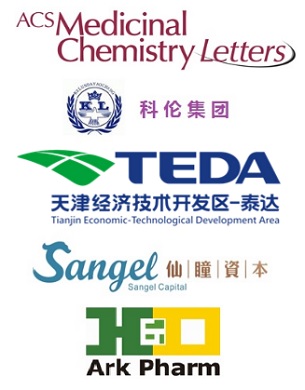Some wear sunglasses indoors, apply cold vinegar compresses or chew on ginger. Others sit in the dark for days. But there’s one thing most migraine sufferers agree on: the pharma industry has failed them. Four drugmakers are working to fix that by bringing to market the first generation of drugs developed to prevent migraines....read more...
国际动态存档 (2015年7月2期)
-
Pfizer's second-quarter sales slip 7 percent on strong US currency; lifts annual earnings guidance
-
Lilly continues test of HDL cholesterol drug, on panel's advice
July 27 (Reuters) - Eli Lilly and Co on Monday said it would continue a large study of its high-profile experimental drug to raise "good" HDL cholesterol and lower "bad" LDL cholesterol, acting on the recommendation of a data monitoring committee. The independent panel of scientific advisors made its recommendation after taking an interim look at data from the Phase III study of the medicine, called evacetrapib, and assessing whether the trial had potential of attaining its primary goals, Lilly said. Such reviews are called futility analyses....read more...
-
Praluent Looks Cheap to Those With Extreme Cholesterol
The newly approved cholesterol-lowering drug, Praluent, is powerful almost beyond belief. It can drive levels of LDL cholesterol, the dangerous kind, into the 20s or even the teens, numbers almost never before seen in adults. In general, it lowers cholesterol by 50 percent to 70 percent, compared with 25 percent to 55 percent with statins. The $14,600 yearly price of the drug, which is injected under the skin once every two weeks, is a stunner. Yet for some patients, that might actually be a bargain....read more...
-
New heart drugs come in more expensive than expected
-
How anti-vaxxers have scared the media away from covering vaccine side effects
-
EU suspends sale of 700 generic drugs made in India
European Union nations have until August 20 to suspend the sale of some 700 generic drugs made in India, the EU's executive confirmed on Monday. The European Commission took the action after an Indian firm contracted by drug companies to test the medications was found to have manipulated data. On-site verifications last year at GVK Biosciences showed irregularities "in each and every one of the nine trials inspected," the European Medicines Agency said in a May report recommending the suspension....read more...
-
Allergan: Pharma's Biggest Dealmaker Is On The Hunt Again
At age 45, Allergan Chief Executive Brent Saunders already pulled off something like $150 billion worth of deals. Now he’s going to get ready to do it again. Last year alone Saunders was credited with an amazing $97 billion worth of mergers and acquisitions – sometimes as buyer, sometimes as seller. With today’s $40 billion sale of Allergan’s generics business to Teva Pharmaceuticals, he caps off one of the most amazing acts of using deals to redefine a company in the drug industry’s history....read more...
-
UK May Require Doctors to Report Their Financial Ties to Drug Makers
-
European Medicines Agency Validates and Grants Accelerated Assessment of Marketing Authorization Application for Empliciti (elotuzumab) For the Treatment of Multiple Myeloma in Patients Who Have Received One or More Prior Therapies
-
FDA Approves Amgen's Kyprolis As a Second-Line Multiple Myeloma Treatment
Amgen Inc. said the U.S. Food and Drug Administration granted approval for its Kyprolis combination therapy as a second-line treatment for patients with relapsed cases of multiple myeloma. The approval allows earlier use of Kyprolis for multiple myeloma--an incurable blood cancer that often becomes resistant to treatment....read more...
-
Toxin from salmonid fish has potential to treat cancer
-
Pembrolizumab Benefit in SCCHN Confirmed in Expansion Study
-
FDA approves Sanofi, Regeneron's PCSK9 inhibitor Praluent
-
FDA Approves Daklinza (daclatasvir) for the Treatment of Patients with Chronic Hepatitis C Genotype 3
-
Want better surgeons? Poll their coworkers
Hospitals can improve patient outcomes, teamwork and surgeons' compliance with care quality standards using a performance assessment common among Fortune 500 companies, according to a study published in the Journal of the American College of Surgeons. Researchers, led by Alex B. Haynes, M.D., of Boston's Ariadne Labs, used the "360-degree" multisource feedback method for 385 surgeons across eight Harvard Medical School hospital surgical programs. They also collected feedback from nearly 3,000 nursing and surgical colleagues, employees and supervisors to help surgeons identify areas where the surgeons fell short of company goals for both technical and interpersonal and communication skills....read more...
-
AbbVie falls short on Q2 sales--but don't blame biosimilars, CEO says
-
Dawn of a New Era? A Cardiologist Takes Stock of PCSK9 Inhibitors
-
BMS US sales are down, despite growing Opdivo adoption
Bristol-Myers Squibb said revenue increased by 7% to $4.2 billion in the second quarter of 2014 even as US sales fell by 3% during the quarter. Still, the company's immunology drug, Opdivo, is off to a strong start with its new lung-cancer indication, with executives telling investors during the earnings call that the drug is performing well in both academic and community settings. Opdivo was granted an indication in lung cancer in March—three business days after it was granted Priority Review....read more...
-
FDA seeks more clinical evidence on Sunesis Pharma cancer drug
Sunesis Pharmaceuticals Inc said the U.S. Food and Drug Administration called for more clinical evidence before considering approval for its cancer drug, sending the company's shares down 60 percent in after-market trading. The drug, vosaroxin, failed a late-stage trial in October as it did not significantly improve the overall survival of patients compared with a placebo...read more...
-
The Human Face Of Clinical Trials
The language of clinical trials is indeed very clinical – data, protocols, endpoints, p-values, etc. – reflecting the scientific rigor of these tests. But it’s important to remember that they involve real people – and often patients with serious medical needs for whom the potential medicine being tested is their best hope. Before any potential new medicine can be given to humans in clinical trials, it must go through rigorous preclinical testing for safety....read more...
-
UCLA Scientists Discover Breakthrough Experimental Therapy to Treat Colon Cancer and Chronic Inflammatory Bowel Disease
Newswise — UCLA scientists have discovered a groundbreaking experimental therapy that has the ability to suppress the development of ulcerative colitis (UC), a disease which causes inflammation in the digestive tract and colon cancer. The treatment utilizes a chemical inhibitor able to block an RNA molecule (microRNA-214) involved in the transmission of genetic information. High levels of microRNA-214 are typically seen in UC patients, who have an increased risk of developing colon cancer. It is still unclear why colitis patients also develop colon cancer....read more...
-
Two generic drugs shown to reduce breast cancer deaths
There's new evidence that two inexpensive generic drugs can improve survival rates for women who develop breast cancer after menopause. In two large studies published Friday in The Lancet, a class of hormone-therapy drugs called aromatase inhibitors and bone-preserving drugs called bisphosphonates improved survival and recurrence rates in postmenopausal women with early breast cancer....read more...
-
Dabrafenib/Trametinib Combo Receives Breakthrough Designation for NSCLC
-
Bristol-Myers smashes Q2 as hep C meds rake in overseas sales
Here's an earnings trend-buster: Bristol-Myers Squibb ($BMY) trounced expectations for the second quarter and hiked its full-year sales forecast by more than $1 billion. And to do that, the company overcame a couple of big challenges that took the wind out of its Big Pharma rivals: Generic competition for one of its former blockbusters, and a major hit from the strong dollar....read more...
-
UPDATE 3-Roche readies new drugs in two-year window before copycats hit
July 23 (Reuters) - Switzerland's Roche is lining up more new drugs to drive sales in a two-year window before cheap copycats of its biotech medicines hit the market, including a promising cancer immunotherapy it hopes to launch by late 2016. The strategy is working so far, with group sales in the first half increasing by a slightly better-than-expected 3 percent as demand for recently introduced products helped offset the strength of the Swiss franc. ...read more...
-
Amgen Submits Supplemental New Drug Application For Kyprolis® (Carfilzomib) In Relapsed Multiple Myeloma
THOUSAND OAKS, Calif., July 23, 2015 /PRNewswire/ -- Amgen (NASDAQ: AMGN) today announced the submission of a supplemental New Drug Application (sNDA) to the U.S. Food and Drug Administration (FDA) for Kyprolis® (carfilzomib) for Injection to seek an expanded indication for the treatment of patients with a form of blood cancer, relapsed multiple myeloma, who have received at least one prior therapy. Kyprolis currently has accelerated approval in the U.S. for the treatment of patients with relapsed multiple myeloma as a monotherapy. The sNDA is based on data from the global Phase 3 ENDEAVOR trial. The ENDEAVOR study is the first of two head-to-head Phase 3 trials of Kyprolis versus Velcade® (bortezomib)....read more...
-
Modified DNA building blocks are cancer's Achilles heel
July 22, 2015, New York - In studying how cells recycle the building blocks of DNA, Ludwig Cancer Research scientists have discovered a potential therapeutic strategy for cancer. They found that normal cells have highly selective mechanisms to ensure that nucleosides--the chemical blocks used to make new strands of DNA--don't carry extra, unwanted chemical changes. But the scientists also found that some types of cancer cells aren't so selective. These cells incorporate chemically modified nucleosides into their DNA, which is toxic to them. The findings, published today in the journal Nature, indicate that it might be possible to use modified nucleotides for specific killing of cancer cells....read more...
-
Could Dexamethasone Dose Affect Glioblastoma Survival?
Dexamethasone is commonly used in the clinical management of the neurologic effects of glioblastoma, such as brain edema. Although it has been associated adverse effects, until now, it was not clear that dexamethasone influences the clinical outcomes of glioblastoma treatment. For the first time, investigators report that high-dose dexamethasone given to patients with recurrent glioblastoma might be associated with decreased survival, perhaps through a suppression of immune effector functions....read more...
-
Funds Join Campaign to Pressure Pharma to Disclose Trial Data
In an unprecedented move, a group of 85 asset managers and pension funds is teaming with a U.K. non-profit campaign to pressure drug makers to disclose clinical trial data. The effort is likely to escalate a closely watched battle that has increasingly placed the pharmaceutical industry on the defensive as researchers and regulators call for increased disclosure. The investors, which collectively manage about $3.8 trillion, plan to meet with drug makers in which they invest to ensure that trials are registered and results are reported, according to Sile Lane, campaign director at Sense About Science, a non-profit that launched the AllTrials campaign in the U.K. to agitate for greater trial data disclosure....read more...
-
Roche clocks fast growth for new meds Perjeta, Esbriet as it girds for biosim rivalries
Roche isn't in denial about oncoming biosimilar competition for its top-selling cancer drugs. But CEO Severin Schwan says its new meds are on track to fill in the gap--and sales growth in the first half of the year go some way toward proving that case. The Swiss drugmaker's first-half sales grew by 3%, a touch better than analysts had expected. Demand for new products--and increased sales for older heavyweights such as Herceptin--overcame the strong Swiss franc to deliver that growth....read more...
-
Praluent's FDA review looms, but questions persist
The FDA later this week is expected to announce whether it has approved Sanofi's and Regeneron's Praluent (alirocumab)—one of two highly anticipated drugs that dramatically reduce cholesterol levels. PCSK9 inhibitors are antibodies that deactivate a specific protein in the liver, which subsequently reduces levels of cholesterol in the bloodstream. Amgen, too, has a PCSK9 inhibitor in development, called Repatha (evolocumab). An FDA advisory panel ruled 13-3 in June in favor of recommending Praluent for approval and 11-4 in favor of Amgen's Repatha....read more...
-
FDA Clears 2 New Propeller Health Devices That Track Respiratory Meds
Propeller Health has received FDA clearance to sell two new devices to help chronic respiratory disease patients track their medication usage and better follow their recommended treatment regimens. Founded in 2010, the Madison, WI-based company makes data-collecting devices that snap on to medication inhalers used by asthma and chronic obstructive pulmonary disease (COPD) patients. The devices can note the time and location for each use, information that is stored and wirelessly transmitted to a user’s smartphone or a Qualcomm base station plugged into the wall at home...read more...
-
Roche steps up work on two experimental Alzheimer's drugs
Roche is to step up its research efforts on two Alzheimer's drugs, both of which suffered setbacks in tests last year, reflecting its belief in drugs targeting protein plaques found in brains of patients with the disease. The move follows new evidence presented on Wednesday that rival antibody drugs from Eli Lilly and Biogen, working in a similar way, may produce improvements in people with the memory-robbing condition....read more...
-
Biosimilars will cut top 10 vulnerable biologics almost in half by 2020: Morningstar
Biosimilar competition may take a bigger bite out of branded sales than we think. The top 10 biologics facing biosimilar competition will see sales fall to $49 billion by 2020, consensus estimates say. That's down from $62 billion last year. But according to Morningstar analysts, that 2020 sales number is too high. In their view, biosimilars will strike sales of that group all the way down to $35 billion, Morningstar said in its latest Healthcare Observer report...read more...
-
Promising Alzheimer's Drugs aducanumab and solanezumab Disappoint With Incremental Data
-
Anxiety and Optimism on the Brink of Biosimilars
-
European Commission Approves Merck’s Anti-PD-1 Therapy, KEYTRUDA® (pembrolizumab), for Both First-line and Previously-treated Patients with Advanced Melanoma
KENILWORTH, N.J.--(BUSINESS WIRE)--Merck (NYSE:MRK), known as MSD outside the United States and Canada, today announced that the European Commission has approved KEYTRUDA® (pembrolizumab), the company’s anti-PD-1 therapy, for the treatment of advanced (unresectable or metastatic) melanoma in adults. The European Commission approval of KEYTRUDA is based on data from three clinical studies conducted in more than 1,500 first-line and previously-treated patients with advanced melanoma. KEYTRUDA received European Commission regulatory approval based on Phase 3 data which showed it is the first and only anti-PD-1 therapy to provide a statistically superior survival benefit as a monotherapy compared to ipilimumab, the current standard of care for advanced melanoma. Today’s approval allows marketing of KEYTRUDA in all 28 EU member states at the approved dose of 2 mg/kg every three weeks. ...read more...
-
FDA Food Safety Challenge winners develop innovative technologies to detect Salmonella
The U.S. Food and Drug Administration today announced the winners of the 2014 FDA Food Safety Challenge, a prize competition to advance breakthrough ideas on how to find disease-causing organisms in food – especially Salmonella in fresh produce. The grand prize winner and runner-up winner will receive $300,000 and $100,000 in prize money, respectively. The winners are: ...read more...
-
XOMA's gevokizumab fails Phase III Behçet's disease uveitis study, shares plunge
-
The Pharma Industry Thinks It Finally Has a Fix for Migraines
-
Europe approves Amgen's first-in-class cholesterol drug, PCSK9 Inhibitor Repatha
WASHINGTON (AP) -- Amgen on Tuesday received European approval for its first-of-a-kind cholesterol drug that lowers levels of the artery-clogging substance more than older drugs that have been prescribed for decades. The highly-anticipated decision introduces a new option for patients at risk for heart disease. But questions remain about the drug's price — estimated by one analyst at about $3,750 per year outside the U.S. — and its ability to reduce heart attack and death in the long term....read more...
-
Drugmaker Novartis blocked from selling Neupogen copycat until Sept 2
-
Novartis looks past dim Q2 results to new Glatopa, Entresto launches
Currency hits and a lagging devices business forced down a Big Pharma's second-quarter sales and profits. No, we're not talking about Johnson & Johnson ($JNJ), though the same was true of the U.S.-based health giant. This time, it's Novartis ($NVS), whose Alcon eye unit proved a drag on strong pharma and generics performance. The Swiss drugmaker's Q2 sales slipped to $12.7 billion, down 5%. Same with earnings, with a per-share result of $0.77, down 31%. Without the currency drag, Novartis sales would have grown by 6%, the drugmaker says, with earnings down 16%....read more...
-
Novartis CEO predicts a pharma pricing squeeze from insurer M&A
Worried that health insurers' urge to merge will put even more pressure on your prices? You're in good company. Novartis ($NVS) CEO Joe Jimenez agrees. For years, pricing freedom in the U.S. has allowed drugmakers to set prices higher than in other countries and raise them along the way. The tactics help offset budget pressures overseas and can drive sales growth for meds on the decline...read more...
-
FDA grants breakthrough therapy status for Bristol-Myers Squibb's investigational HIV-1 attachment inhibitor BMS-663068
-
Teen in remission from HIV 12 yrs after stopping meds: researchers
Vancouver (AFP) - A French teenager born with HIV has been in remission for 12 years after stopping her medication, a world-first that renews hope for the prospect of early treatment, researchers said Monday. The young woman, now 18, is not considered cured, but is doing perfectly well off treatment, said the research led by Asier Saez-Cirion of the HIV, Inflammation and Persistence Unit at the Institut Pasteur in Paris...read more...
-
Opdivo gets EU lung cancer nod as kidney cancer trial is halted
The European Commission cleared the PD-1 inhibitor for locally advanced or metastatic squamous (SQ) NSCLC after prior chemotherapy, consolidating BMS' lead over arch-rival Merck & Co - whose Keytruda (pembrolizumab) is not yet approved in the EU or indeed for lung cancer in any market. BMS said the approval of Opdivo (nivolumab) "marks the first major treatment advance in SQ NSCLC in more than a decade in the EU" and looks likely to replace the current standard of care. The drug was approved for melanoma in the EU last month...read more...
-
Fact: Pharmaceutical Companies Do Not Conduct Clinical Trials
Much of the news people hear about pharmaceutical innovation has to do with clinical trials. So I’m writing a series of posts about these trials, which underlie regulatory approval of new medicines. The cost of developing medicines is a hot topic in health care. A recent Tufts study put the average cost to develop a new medicine at more than $2.5 billion. Many people don’t realize that 60% of those costs are in clinical trials...read more...
-
Adaptimmune's NY-ESO-1 TCR-engineered T-Cells Demonstrate Durable Persistence, Clinical Activity and Tolerability in Clinical Study in Multiple Myeloma Patients
-
Study shows promise of precision medicine for most common type of lymphoma


















 微信号:美中药源
微信号:美中药源